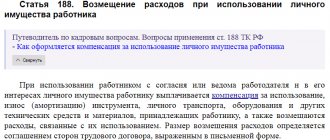In our state, not only the person who produced counterfeit documents is subject to criminal liability, but also the citizen who used them, knowing that they were fake. This is the law. In addition, liability under Article 327 of the Criminal Code of the Russian Federation, Part 3, does not occur if a person did not know that he was using forged documents to exercise his rights and obligations. However, this fact requires official confirmation. Read more about all this in this article.
Basics
The use of false documents is punishable by law. After all, in the Russian Federation this is considered a criminal offense. In turn, a person who presents false documents to various institutions, organizations and officials is an attacker and must be punished for what he has done. The sanctions for this crime are specified in Art. 327 of the Criminal Code of the Russian Federation, part 3.
Unfortunately, many people are not stopped even by the fact that the use of fake documents is criminally punishable. In addition, some people believe that a purchased higher education diploma is no different from the one awarded to university graduates after graduation. Although in fact this opinion is erroneous, and the use of forged papers is illegal.
How it manifests itself
As stated earlier, Article 327 of the Criminal Code of the Russian Federation (Part 3) contains sanctions for those persons who use false documents, fully aware of the fact that they are violating the current law.
But how does this manifest itself? For example, a citizen bought himself a driver’s license and drives a car. In this case, the latter realizes that he is committing an illegal act, but still continues to drive without state permission (without a real license). If he is stopped by a traffic police inspector and it is discovered that the document is fake, the person will be held accountable under Art. 327 of the Criminal Code of the Russian Federation, part 3. After this, the citizen will receive a criminal record with all the ensuing adverse consequences.
Compound
Forgery and the use of false documents are still intertwined. Because one crime follows from another. After all, without producing fake documents, their use will be impossible.
The composition of the act under Part 3 of Article 327 of the Criminal Code of the Russian Federation will be as follows:
- the subject is only a sane person who is already sixteen years old;
- the subjective side is presented in the form of direct intent, because a person commits a crime consciously, knowing that he is committing illegal actions;
— the object here is a violation of established state and legal norms;
— the objective side is expressed in the varied use of false documents.
Official website of the Supreme Court of the Russian Federation
The plenum of the Supreme Court of the Russian Federation discussed a draft resolution on cases of crimes encroaching on the established procedure for the circulation of official documents, state awards, excise stamps, as well as the procedure for recording vehicles. It turned out that judicial practice is very contradictory. And recent changes to criminal legislation have only added problems to law enforcement officers. Lack of clarity and uniform approach
The speaker, Judge of the Supreme Court of the Russian Federation Tatyana Ermolaeva, recalled that in 2019 the legislator made significant changes to Article 327 of the Criminal Code of the Russian Federation, aimed at strengthening liability for forgery, production or circulation of counterfeit documents, state awards, stamps, seals or forms. In addition, Article 327.1 of the Criminal Code of the Russian Federation (production, sale of counterfeit excise stamps, special stamps or marks of conformity) has been repeatedly edited to make it stricter.
“These changes, not consistent in all respects, but contradictory in a number of ways, have brought a number of problems to judicial practice in criminal cases of such crimes,” advised the judge of the Supreme Court of the Russian Federation.
Ermolaeva provided general statistics. About 11-12 thousand people are convicted annually for committing crimes under Articles 324–327.1 of the Criminal Code of the Russian Federation. At the same time, criminal cases against a quarter of the accused were dismissed by the courts on non-exonerating grounds. Including the imposition of a court fine. The vast majority of persons (about 95%) are prosecuted under Article 327 of the Criminal Code.
“The study of judicial practice revealed a lack of clarity and a uniform approach among the courts on a number of issues regarding the application of this article,” said the judge of the Supreme Court.
First of all, according to Ermolaeva, difficulties are associated with the lack of legislative definitions of the concepts of “official document”, “official document granting rights or relieving oneself from obligations”, as well as “important personal document”. Despite the fact that for the purposes of criminal law relations it is difficult and sometimes incorrect to use the interpretation of documents contained in other branches of law. The Constitutional Court of the Russian Federation drew attention to this circumstance in its ruling dated May 19, 2009. Also, the legislator has not proposed clear distinctions between the criteria for different types of documents. And his approach to establishing crime and the punishability of unlawful acts with these documents is not entirely consistent.
Ermolaeva gave an example. Thus, according to Article 325 of the Criminal Code of the Russian Federation, liability for the theft of a citizen’s passport is less strict than for similar actions in relation to other official documents. And according to Article 327 of the Criminal Code of the Russian Federation, on the contrary, forgery of a passport and its use entail a more severe punishment than forgery of an official document granting rights or releasing one from obligations.
How to differentiate between documents
Ermolaeva gave a brief overview of the contents of the draft resolution, consisting of 19 points. The Supreme Court judge called the document “quite laconic,” but at the same time one that comprehensively includes an explanation of only those issues that concern the law enforcement officer.
Paragraphs 1–4 discuss the subject of crimes provided for in Articles 324, 325 and 327 of the Criminal Code of the Russian Federation. These points, according to Ermolaeva, contain the answer to the main question: what is meant by specific types of documents and how to distinguish them from each other.
In paragraph 1, taking into account the established judicial practice, it is explained that official documents granting rights or releasing from obligations in Article 324 of the Criminal Code of the Russian Federation and official documents in Part 1 of Article 325 of the Criminal Code of the Russian Federation mean such documents, including electronic ones, that are created and issued or are certified in the manner prescribed by law or other regulatory act by federal government bodies, government bodies of constituent entities of the Russian Federation, local government bodies or authorized organizations or persons. And the main purpose of these documents is that they certify legally significant facts.
Such documents fully include electronic documents. Recognition of the materiality of an electronic document as a type of document and its equivalence to a document on paper follows from the provisions of the federal laws on information and on electronic signatures.
“In the context of the development of digital technologies and the increasing use of electronic document management, unlawful actions in relation to electronic documents that are official can be qualified under Articles 324 and 325 of the Criminal Code of the Russian Federation, and their forgery - under Article 327 of the Criminal Code of the Russian Federation,” Ermolaeva explained.
Clause 2 of the draft is devoted to documents called “important personal” for the purposes of Part 2 of Article 325 of the Criminal Code of the Russian Federation (theft of a citizen’s passport or other important personal document). In addition to a citizen’s passport (including foreign, diplomatic or official), these include a military ID, driver’s license, pension certificate, certificate or diploma of education, vehicle registration certificate, vehicle passport and others. That is, documents belonging to a citizen that certify legally significant facts and give him a certain legal status, designed for their repeated or long-term use.
Corresponding explanations are contained in paragraph 6 of the draft. It states that theft, as well as the destruction, damage or concealment of a passport or other important personal document cannot be qualified under Part 1 of Article 325 of the Criminal Code of the Russian Federation (theft, destruction, damage or concealment of official documents, stamps or seals).
“This clarification reflects the principled position of the Presidium of the Supreme Court of the Russian Federation, developed over many years of practice,” Ermolaeva noted.
Fake or counterfeit?
Article 327 of the Criminal Code of the Russian Federation, as a result of amendments to it in 2019, established liability for the use of not only knowingly forged (Part 3), but also forged documents (Part 5). Paragraph 4 of the draft proposes a distinction between these crimes.
“It is not based on the difference in synonymous terms used by the legislator, but is based on the characteristics of documents protected by different parts of one article of the criminal law,” the speaker explained.
Thus, within the meaning of Part 5 of Article 327 of the Criminal Code of the Russian Federation, knowingly forged documents include any counterfeit documents certifying legally significant facts, with the exception of counterfeit citizen’s passports, identification cards or other official documents granting rights or releasing from obligations. For example, a forged civil contract, a diagnostic card of a vehicle, a decision of a general meeting of owners of premises in an apartment building.
Theft of state awards: the position of the Constitutional Court and the practice of the Supreme Court
Article 324 of the Criminal Code of the Russian Federation (purchase or sale of official documents and state awards) equally protects the circulation of state awards of the Russian Federation, the RSFSR, and the USSR. However, theft of official documents does not constitute a crime under this article. Responsibility for this crime is highlighted as an independent norm (Article 325 of the Criminal Code of the Russian Federation). Whereas responsibility for the theft of state awards is not an independent norm. In this regard, in judicial practice there is no unified approach to resolving the issue of whether theft is a way of illegally acquiring state awards and how exactly such actions should be qualified - under Article 324 of the Criminal Code of the Russian Federation or under the article of the Criminal Code of the Russian Federation providing for liability for theft of property. In paragraph 5, this problem of law enforcement is resolved as follows: the theft of state awards of the Russian Federation, the RSFSR and the USSR is one of the ways of their illegal acquisition and is qualified under Article 324 of the Criminal Code of the Russian Federation. If the theft of awards was associated with the use of violence, then such actions form a set of crimes provided for in Article 324 of the Criminal Code of the Russian Federation and the corresponding article of the Criminal Code of the Russian Federation on liability for a crime against life and health.
— This clarification is based on the legal position of the Constitutional Court of the Russian Federation that the public legal nature of a state award as an intangible benefit excludes the possibility of recognizing this benefit as an object of property rights. It is also confirmed by the practice of the RF Armed Forces on this issue,” Ermolaeva said.
What is recognized as fake license plates?
Paragraph 6 is devoted to Article 326 of the Criminal Code of the Russian Federation (falsification or destruction of a vehicle identification number). It is clarified that the use of a knowingly forged state registration plate includes, in particular, installation on a vehicle for the purpose of committing a crime or facilitating its commission or concealing a state registration plate produced in accordance with the established procedure, different from that included in the registration documents of this vehicle (for example, issued to another vehicle), driving for the same purposes a vehicle with such a state registration plate installed on it.
In this case, a counterfeit of a state registration plate is the production of such a sign in violation of the procedure established by the legislation on technical regulation or the introduction of changes into a sign manufactured in the established manner that distort the symbols applied to it (for example, by extrusion, mechanical removal of the symbol (symbols), erasure, touch-up) and allowing for a different interpretation of the sign.
Difficulties in applying Article 327
Paragraphs 8–14 of the draft are devoted to the application of Article 327 of the Criminal Code of the Russian Federation. In particular, paragraph 8 explains what exactly the forgery of a document consists of. Paragraph 10 proposes the interpretation “use of a forged (forged) document.” At the same time, the attention of the courts is drawn to the fact that the use by a person of his own original document that is invalid (for example, expired), or an original document belonging to another person, or the presentation of an original document similar to it instead of an appropriate document does not constitute a crime under Part 5 of Article 327 of the Criminal Code of the Russian Federation.
Paragraph 11 contains the answer to the question about the moment of termination of the use of a knowingly forged (forged) document. It is also explained here that if a deliberately forged (forged) official document presented by a person for the specified purpose was subsequently used to obtain rights or be relieved of obligations for a certain period (for example, during employment and during subsequent work in the organization), then the provisions provided for in Article 78 of the Criminal Code of the Russian Federation, the statute of limitations for criminal prosecution for such a crime should be calculated only from the moment of the actual cessation of the use of a forged (forged) official document, including as a result of the suppression of the act.
Qualification Questions
Ermolaeva noted that more dangerous crimes are committed using illegally acquired or counterfeit official documents, seals, stamps and forms - various frauds, smuggling, economic crimes. In this regard, courts often have questions related to the qualification of such acts, either according to the totality of such crimes, or only according to the article on a more serious crime, the method of which covers the illegal use of documents, stamps, seals, and forms.
In this regard, in paragraphs 12 and 13 of the draft, the attention of the courts is drawn to situations that require the qualification of acts as a set of crimes provided for both in various parts of Article 327 of the Criminal Code of the Russian Federation, and in other articles of the Criminal Code. It also reflects cases when the use of a deliberately forged document produced by another person to commit another crime is covered by the method of the crime committed (for example, fraud) and does not require an independent legal assessment under Part 3 or 5 of Article 327 of the Criminal Code of the Russian Federation.
Paragraph 14 contains clarifications regarding the qualification of acts under Part 4 of Article 327 of the Criminal Code of the Russian Federation and cases when acts can be recognized as committed with the aim of facilitating or concealing the commission of another crime. For example, when forgery and presentation of a false document are used for the purpose of illegally gaining access to a home or storage facility to commit theft.
Fake excise tax controversy
Paragraph 15 concerns the application of Article 327.1 of the Criminal Code of the Russian Federation on liability for the manufacture, sale of counterfeit excise stamps, special stamps or marks of conformity protected from counterfeiting, or their use. This item was proposed for consideration by the plenum with an option. In particular, the members of the plenum had to decide whether persons who themselves did not label alcohol and tobacco with counterfeit brands, but who purchased such products for the purpose of marketing, knowing for certain that those placed on them, could be held liable under Part 4 or 6 of Article 327.1 of the Criminal Code of the Russian Federation. fake stamps, and then sold it. At the same time, the speaker emphasized, it should be borne in mind that these persons did not commit actions that are described in the disposition of the article as the use of counterfeit stamps for marking.
— The opinions of the courts on this issue were significantly divided. This issue requires discussion,” Ermolaeva stated.
As a result, the draft resolution was sent to the editorial committee for revision.
Alexey Kvach
What awaits the culprit?
Despite the fact that sanctions in the form of isolation from society are not included in Part 3 of Article 327 of the Criminal Code of the Russian Federation, the punishment awaiting the attacker will be no less severe here. Therefore, if a judicial authority finds a citizen guilty of using false documents, and at the same time the latter knew that the papers were forged, then the criminal expects:
- a fine of up to 80 thousand rubles or wages (other income) of the convicted person for a period of up to six months;
— or compulsory work (up to 480 hours);
— correctional labor is also provided for a period of no more than 2 years;
- and the last thing is arrest for a period of no more than 6 months.
Here it is necessary to immediately note that the punishment prescribed in part 3 of Art. 327 of the Criminal Code of the Russian Federation is an alternative. In other words, the judicial authority independently determines which of the sanctions prescribed by law to apply to the perpetrator for the crime.
Comments on Article 327 of the Criminal Code of the Russian Federation
The main object of the crime is the normal activities of public authorities and management. An additional object is the rights and legitimate interests of citizens and legal entities.
The social danger of the act lies in the fact that it violates the established procedure for handling official documents, stamps, forms, seals, as well as the rights of citizens.
A forged document is a document containing deliberately distorted information about certain facts. Distortion of information can be carried out by forging the signature of the applicant and other persons, the certification inscription (signature and seal) of a notary, making corrections to the text of the document through erasures, additions, reprints, etc., including using various types of technical means.
Forgery of a document can be either partial (making changes through erasures, additions, reprints, etc. to an original document) or complete (creating a completely false document) (letter of the Federal Tax Service of Russia dated April 23, 2014 N SA-4-14 /7872).
Nuance
So, this means that a person can be held accountable for his actions only if the latter used forged documents to exercise his rights, the falsity of which he knew in advance. But what will happen if the citizen did not even suspect that the papers were fake? Of course, in order to prove a person’s guilt in deliberately using forged documents, a preliminary investigation must be conducted. After all, it may also be that the latter did not know that the papers were not real (for example, a citizen received a passport in the prescribed manner, but the document number in the database was not recorded). Although in practice this rarely happens.
Therefore, if the investigative authorities fail to prove the fact that a person deliberately used a false document, the latter will not suffer any punishment for this.
Responsibility under other articles
In some circumstances, acts of forgery or sale of counterfeit documents may be covered by other articles of the Criminal Code.
Thus, when a counterfeit prescription for a narcotic drug is presented to a pharmacy, the actions of the perpetrator will correspond to the crime provided for in Art. 233 of the Criminal Code of the Russian Federation and does not require additional articles.
For falsification of the results of a decision of participants in a general meeting of a business company, a separate article 185.5 of the Criminal Code of the Russian Federation is provided.
For the manufacture or sale of counterfeit securities or cash (any banknotes) the penalty is up to 15 years in prison in accordance with Art. 186 of the Criminal Code of the Russian Federation, in the presence of certain additional signs.
It is necessary to take into account that administrative liability for forgery of documents also exists. According to the description, the actions constituting an offense under Art. 19.23 of the Code of Administrative Offenses of the Russian Federation, completely coincide with the crime, the signs of which we examined in this article. The difference is that according to the Code of Administrative Offenses of the Russian Federation, only a legal entity is liable for forgery of official documents, which may be subject to a fine of 30,000 to 40,000 rubles. Examples of such offenses could be fake licenses to carry out work, provide specialized services, etc.
In practice
Here it must be said that nowadays there are more and more cases of people openly using false documents. It is for this reason that many citizens have a criminal record under Art. 327 of the Criminal Code of the Russian Federation (part 3). Practice shows that most young people who do not want to study acquire diplomas from various companies that legally produce printed materials. It is not so easy to detect false documents; this requires a special examination.
Citizens who used false diplomas and other certificates when applying for employment in the organization were subsequently dismissed from the enterprise on the initiative of the manager himself. After which the former employees were held accountable for the act committed.
In addition, in practice, sometimes different situations occurred. Some people even worked as doctors in the surgical department of a hospital with fake diplomas and operated on people. Other attackers taught children and even worked in government agencies.




